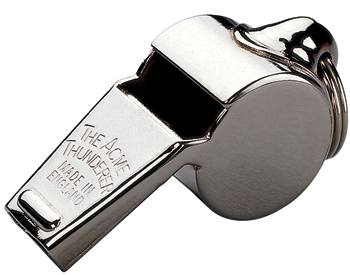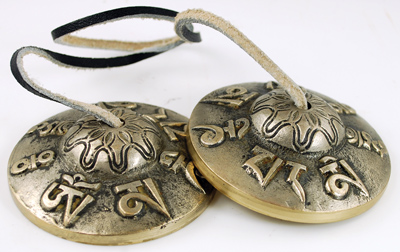I often run a speed-conversation session at the start of a Knowledge Café and workshops or conferences. It is a great ice-breaker and exceptionally easy to run.
Sometimes speed-conversation is called speed-networking, but I prefer to call it speed-conversation as it is far more about conversation than networking.
How to run a speed-conversation session
You will need a device to attract people’s attention. I use a whistle.
You do not necessarily need a whistle – but try shouting over the din of 30 or more people chatting away, and you may go out and buy one for the next event. However, another sound-making device of your choice will do.
The whistle I use is an acme thunderer – the world’s first reliable pea whistle – invented in 1884 by Joseph Hudson in Birmingham, England. Over 160 million have been sold worldwide! I carry it with me at all times on my key ring.
The Process
This is how the process works:
- Briefly explain the process
- Blow your whistle once
- Everyone finds a partner – someone whom they do not know
- They have two minutes to have a conversation with them
- Blow your whistle again and ask people to swap partners
- Allow two minutes for further conversation
- Repeat this procedure 3 or 4 times
- Finally, blow your whistle twice to indicate the end of the session
The question
Some facilitators explicitly tell people what to discuss, such as “Why are you here today?” or “What do you hope to learn today?” As a host, I never do this as I think people can decide what to talk about for themselves. Often, the best conversations are spontaneous ones.
I recall once, at a conference, a good friend, Paul, facilitated a speed conversation session at the start of the day. He told us what to talk about. I don’t recall the question. As always, in such circumstances, I ignored the instructions and got into a far more interesting conversation with my partner. I wanted to know who they were, where they were from – something more personal about them.
At the end of the session, Paul called upon several people in the room to share the outcome of their discussion. As he knew me well, he called on me first, and I had to confess that we had not discussed his question. I did not feel embarrassed at all.
Rationale
In just ten minutes, you can cycle four times. This simple process works exceptionally well and can be expanded or contracted depending on available time.
I tell people it’s a bit like speed-dating, but you don’t get to date and then add, but there is no rule against it! This always gets a laugh :-)
Speed-conversation lifts the energy in the room, and the biggest problem is getting people to stop and sit down again.We must establish a personal connection with each other.
Connection before content.
Without relatedness, no work can occur.
Recent research (Friends With Cognitive Benefits – What Types of Social Interactions Boost Executive Functioning? by Oscar Ybarra, Piotr Winkielman, Irene Yeh, Eugene Burnstein, Liam Kavanagh) shows that talking with other people in a friendly way makes it easier to solve everyday problems. However, conversations that are competitive in tone rather than cooperative have no cognitive benefits and suppress the ability to solve problems.
This is the reason for the short speed-conversation session at the start of the Café. It relaxes people, gets them talking about uncontroversial things, and boosts their thinking ability.
The buzz of speed conversations at a Knowledge Café at Regents University, London, in 2015Tweet This
- Speed conversations are a little like speed dating, but you don’t get to date. #KnowledgeCafe
- Speed conversations: Without relatedness, no work can occur. #KnowledgeCafe
Things Todo
- Todo: Next time you convene any get-together – a meeting, a workshop, a seminar, a knowledge cafe, run a few rounds of speed conversation to help connect people.
POST NAVIGATION
CHAPTER NAVIGATION
SEARCH
Blook SearchGoogle Web Search
If you enjoy my work and find it valuable, please consider giving me a little support. Your donation will help cover some of my website hosting expenses.
Make a donation



